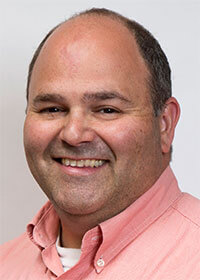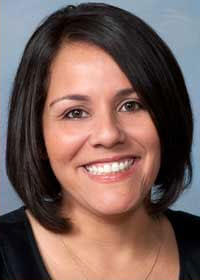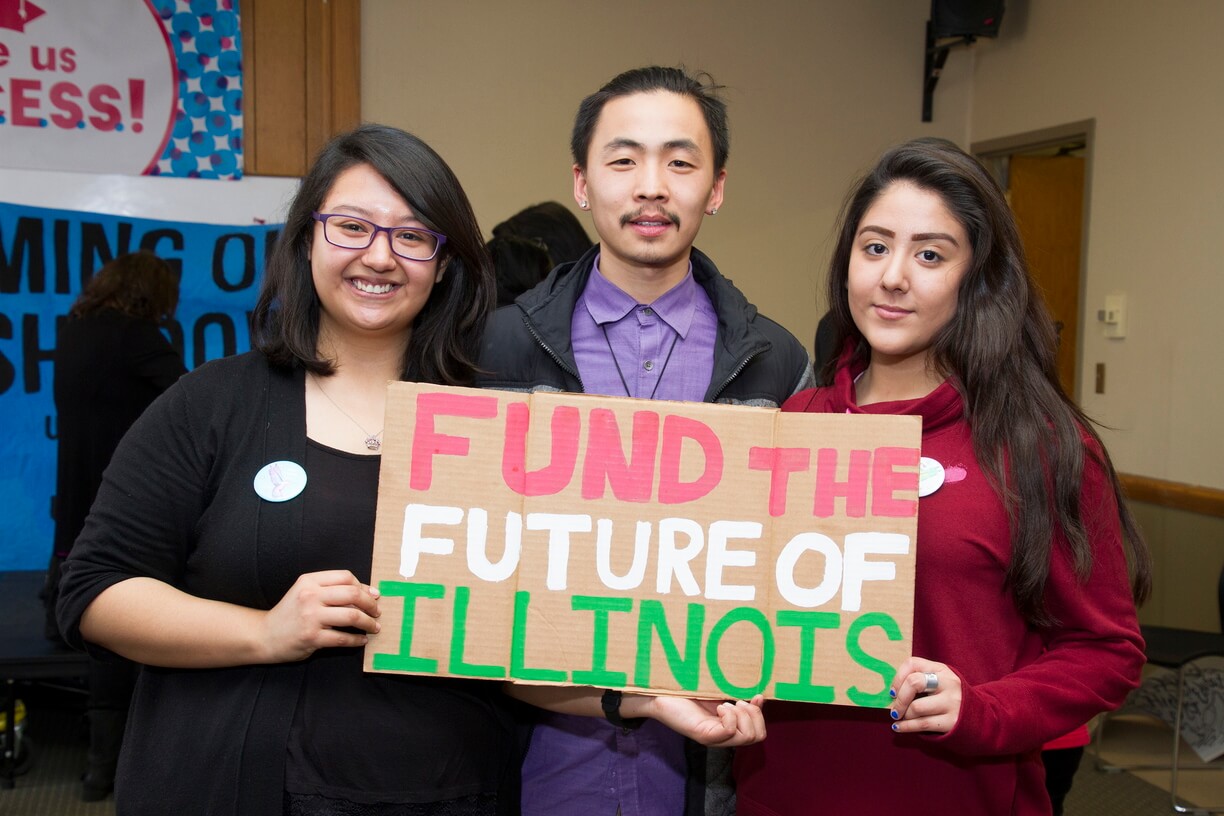
Cynthia Taines
When President Trump acted this fall to end the Deferred Action for Childhood Arrivals (DACA) policy, Cynthia Taines immediately looked beyond the inflamed political discourse.
Taines, an associate professor in the NIU Department of Leadership, Educational Psychology and Foundations, thought instead, of the youngest of children, of adolescents and, naturally, their teachers.
“Undocumented students disclose their status to people they trust,” Taines says, “and it seems to me that it’s a pretty common experience that undocumented students are talking to their teachers.”
She has seen it firsthand from teachers and students in Chicago and the north suburbs, thanks to her work with the Metropolitan Community Project. She has seen it in DeKalb as well, thanks to guest appearances in her classes from DREAM Action NIU and the CHANCE Program.
And, Taines says, she has seen that some of the future teachers in her courses aren’t personally familiar with the changing political landscapes that challenge undocumented children in U.S. schools.
“Many of them don’t think that they know anyone who’s undocumented,” Taines says.
For that reason, she makes sure that all of her students understand the gravity of the situation and its impact on the role they soon will play as professional educators.
“I bring real-life voices – their fellow Huskies, their fellow students – who look and sound like any college student. Not all disclose that they’re undocumented, or say that they have family member who are, but some do. They’re really brave,” she says.
“They talk through their struggles, their strengths and where they found support, and it’s often from friendly approachable people in schools, like teachers and educators,” she adds. “I’m trying to encourage empathy and some sort of moral response that doesn’t necessarily come out of a less reflective place or from parroting things you might hear on the news. I’m making this more human and more real.”
Her approach reflects and reinforces a deep-seated philosophy of the NIU College of Education, which proudly stands for educational equity and access for all. The college strongly believes that education is a human right and that all students can succeed.

James Cohen
James Cohen, an associate professor in the Department of Curriculum and Instruction, enthusiastically shares those principles.
“Over 70 percent of the American population believes that DACA should be continued because they see that you can’t punish kids for the choices their parents made,” says Cohen, who teaches courses in multicultural and bilingual education and was an organizer of NIU’s Social Justice Summer Camp this past summer for K-12 educators.
Students in his classes learn about the injustices that exist in society, including institutionalized and systemic racism. They also are taught to view students from a “strength model,” where children feel welcome, respected and motivated to work, rather than from a “deficit model.”
“If you look at how our society is structured, it’s structured for people who are in power. It’s not structured for people who have brown or black skin, who don’t speak English as a native language and especially not for people who don’t have legal documentation to be here,” he says.
“In my classroom, I have students doing a lot of reading. They read about what it means to be an undocumented immigrant and what it means to live a life without documentation,” he adds. “We discuss it, and we build empathy. We don’t build sympathy. Sympathy is, ‘Oh, I feel bad for you.’ Empathy is, ‘I need to do something about this.’ ”
Cohen makes sure that his future teachers understand, and are ready to fulfill their role as “advocates who actually act and don’t sit back and do nothing.”
“There’s a concept called social mirroring. If you belong to an ethnic group – which we all do – and society views your certain group as X, Y or Z, it’s very difficult to not believe that you are X, Y or Z,” he says.
“As teacher-advocates, our students need to advocate for their students so that they do not believe in all of these negative stereotypes that float around in our society,” he adds. “If you start believing that you’re lazy, or you start believing that you’re a troublemaker, those can turn into self-fulfilling prophecies. You might drop out of school, get into trouble, join a gang or believe that school is not meaningful.”

Sandy Lopez
Sandy Lopez, an assistant to the director at NIU’s Center for Latino and Latin American Studies, is counting on NIU College of Education graduates to make a positive difference for current and future generations.
Around 4.5 million K-12 students currently in the United States are U.S.-born with undocumented parents, Lopez says. Another 1 million are undocumented with undocumented parents; of those, 65,000 graduate each year from high school.
Between 7,000 and 13,000 will matriculate into higher education, which is only 20 percent at best.
“It’s important for teachers to work with these students to let them know that there are opportunities to continue and to go to college,” she says. “Otherwise, these students will disengage.”
Immigrants bring many strengths to their classrooms – “They’re balancing two worlds. They’re bilingual. They’re bicultural,” Lopez says – and are resilient students, many of whom have learned to advocate for themselves, their families and their communities.
Yet they worry about their families being separated. They worry about being deported. They worry that their schools will report them, something that can cause anxiety rather than concentration in the classroom as well as mistrust of principals and other administrators.
Many children also serve as translators on behalf of their families, juggling critical interactions with everyone from landlords to doctors along with their nightly homework.
Teachers must strive for sensitivity, Lopez says, creating a safe space where children can find support while they share their fears and their successes.
“It’s so critical that these kids know that they’re not alone and that their school is not going to turn them in,” she says. “They have no reason to divulge that information to anyone.”
Colleges are not immune, she adds.
Following President Trump’s announcement, Lopez says, “I had a student who came into the center, shaking. She was having a hard time breathing. I said, ‘I didn’t realize you were undocumented.’ She said, ‘I’m not. My parents are.’ ”

Stories like that motivate Taines and, she believes, her students.
“Educational equity drives me,” Taines says. “That’s the reason I got into education. It’s a large piece of how we can achieve social equality because education is one of the main drivers of opportunity. Just because there’s a language issue doesn’t mean that a student is not going to achieve or achieve highly.”
Taines accentuates her objective by sending students to research the language-learning programs of the high schools from which they graduated.
“Every time, I get some initial pushback: ‘My school doesn’t have that program. We didn’t have any kids in my school who were language-learners.’ I say, ‘I just want you to look. It’s possible that’s changed.’ The students come back and say, ‘I didn’t know we had this,’ ” she says.
“They realize they had only a slice of understanding about the institution as a whole,” she adds. “Their communities are changing quickly. The suburbs are becoming more diverse. Thinking through these issues, having them think through the issues and connecting to them on a human basis, will help them serve their future students.”
Cohen makes his point through a role-playing exercise where he is “the angry man on the plane” who’s in favor of mass deportation. The students must persuade him otherwise.
“It’s amazing. You can see their wheels turning,” he says. “You can see how they’re trying to convince me that what I’m saying is based on ideology and not on facts. They put me in the shoes of an immigrant student. They make it more relevant me. They try to convince me that bilingual education and equal treatment of undocumented immigrants are the right, ethical and moral choices.”
Students gain the solid foundation for their arguments during every class period of the semester, he adds.
“My bottom line is that teachers have to be thinking about their students and less about themselves. We can’t blame our students for the context or the predicament they’re in. I want my students to learn the facts so that they can teach the facts,” Cohen says.
And it’s working, he says.
“We are turning out teachers who understand the systems and hierarchies of injustice that exist. We are producing teachers who know how to advocate for kids. We are producing teachers who are good pedagogists. I’m very proud of being a faculty member in the NIU College of Education and of all the good work we are doing here.”
